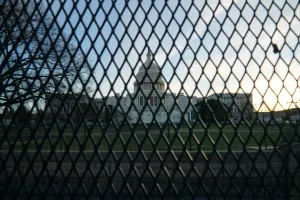On Tuesday, Democrats in the House of Representatives fired their most recent shot in the ongoing political battle over voter rights and the future of elections in the United States. Amidst a much-reported drama within the party over how to sequence votes on a pair of bills dealing with infrastructure and welfare policy, House Democrats passed H.R. 4, the John Lewis Voting Rights Advancement Act, to little media fanfare. The bill’s main objective is the restoration of some key provisions of the 1965 Voting Rights Act which were struck down in the landmark Supreme Court Case Shelby County v. Holder in 2013.
The bill contains two key provisions worth summarizing. First, it establishes a more rigorous system for pre-clearance: the prevention of state and local governments from discriminating against minority voters, from voter registration accessibility to polling place availability. Second is a provision that would prevent the packing of racial and ethnic minorities into as few congressional districts as possible—a common gerrymandering tactic that exploits statutory requirements for minority representation in Congress.
But the real significance of H.R. 4 is not its potential for impact but the likelihood of its failure. The bill has a near-zero chance of passing the Senate. Other pieces of voting rights legislation introduced by Democrats face similarly long odds. Without those bills, the GOP will almost assuredly benefit, especially in the face of an ongoing attempt by Republican-controlled state legislatures to restrict access to the vote.
All told, as of May, legislators introduced 389 restrictive bills in 48 states. In Arizona, Florida, and Georgia, Republican-controlled state governments have enacted bills that make it harder to re-route ballots cast in the wrong precinct, increased restrictions for absentee voting, and reduced the number of drop-boxes available to voters.
Perhaps the boldest bill enacted was in Georgia, which drastically increased the state legislature’s power to appoint officials to the state board of elections and enabled that board to suspend or remove county-level elections officials. Such actions clearly constitute a shot at Georgia Secretary of State Brad Raffensperger, who resisted pressure from Mr. Trump and his allies to alter the results of the presidential election in Georgia. For example, the state board’s new power gives it increased leverage over the cities in Georgia populated by Black Democrats.
Even worse for Democrats, a history of gerrymandering at the state level has given Republicans massive power to draw congressional districts in their party’s favor, something that H.R. 4 would do little to diminish even if it were passed.
Under normal circumstances, House Democrats would be likely to lose their narrow majority in the 2022 midterm elections. And with a population distribution that favors the political power of small states, Senate Democrats likewise face difficult odds in holding their own razor-thin majority. But it’s not just the 2022 elections that may be decided now but the next decade and beyond.
The GOP is increasingly signaling that it is satisfied with—even desirous of—acquiring and holding onto political power without winning popular majorities. The merits or failings of conservatism aside, this is a disturbing sign, all the more so because the party effectively possesses the latent power to do so. A host of Republican representatives and senators protested the objectively fair results of the 2020 presidential election. State-level politicians seem even more uniformly radical in their desire to restrict access to the ballot box, and federal politicians are doing little to discourage them.
It may happen in increments, but the United States could well be sitting on the precipice of what academics call “competitive authoritarianism,” in which elections are held but only one party has any meaningful chance of winning, regardless of whether or not it enjoys majority support. To be unnerved by recent developments—and by the Democratic Party’s failure to be more aggressive about preserving electoral democracy, perhaps via some sort of end-run around the filibuster to pass elections legislation—is not partisan. In fact, conservative pundit Tucker Carlson has even openly endorsed the Hungarian authoritarian who used just this strategy.
One political party has gone rogue. The other seems insufficiently clear-eyed about the stakes, though it may already be too late. After all, redistricting is underway in key states, and Republican legislatures have already passed a host of damaging bills. But that’s hardly an excuse to give up our commitment to democracy.




Comments
Join the conversation